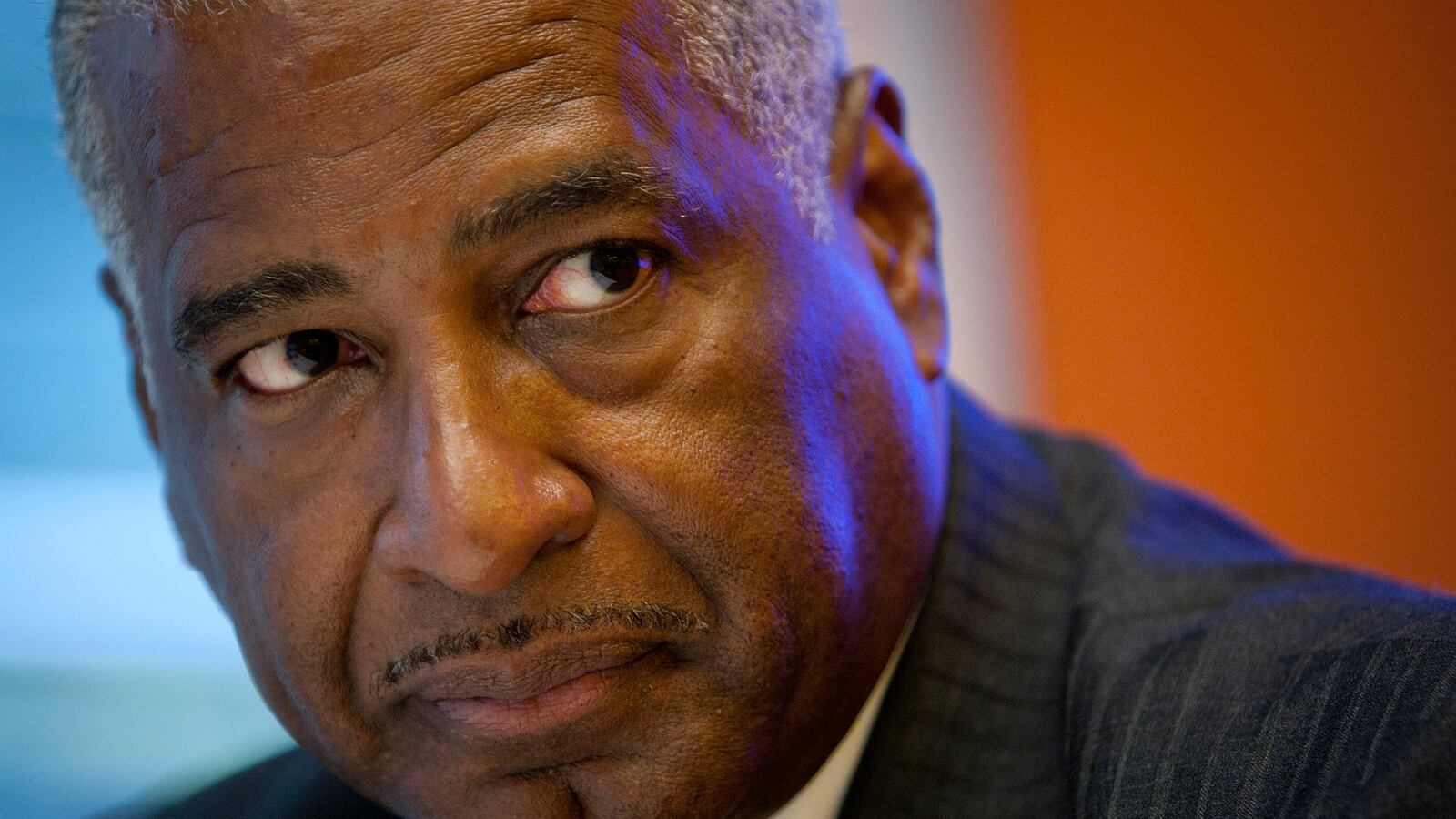The dispute over sanctuary cities is quickly shaping up to potentially be this generation’s civil rights struggle, with states, municipalities, universities and churches willing to stand up to the federal government to protect undocumented Americans. While California and Newark, New Jersey might receive most of the attention for their sanctuary city policies, a looming conflict has emerged in Attorney General Jeff Sessions’s backyard.
“Once upon a time people would say that nothing would ever change here in the South, you’ll always have lynchings, you’ll always have bombings,” said Birmingham Mayor William Bell to The Daily Beast. “The transition that Birmingham made to be an all-inclusive city from our segregated past can really demonstrate to the rest of the world that it can be done.”
Last week, Sessions threatened to withhold or revoke law enforcement funding from sanctuary cities, or any state, city, or local government that blocks the police or sheriffs from telling federal authorities about undocumented immigrants in their custody. This position could place these two Alabamians in conflict over civil rights in the months to come.
In January, Mayor Bell, who is African American, signed a resolution designating Birmingham as a “welcoming city,” which is similar to a sanctuary city. Birmingham’s resolution does not create new policies and it is not a law. Civil rights advocates may argue that this resolution is all talk, but in Alabama this represents a controversial position. Bell likes to call Birmingham “the blue heart in a red state” (Hillary Clinton won Jefferson County, which includes Birmingham with over 52 percent.)
Embattled Alabama Governor Robert Bentley—who is currently under investigation for impeachment stemming from numerous corruption charges connected to an affair with a staffer—quickly denounced the resolution. “Alabama will not support sanctuary cities or institutions that harbor or shelter illegal immigrants,” the Governor said.
Bell stood his ground. “Every individual who resides, works, plays or comes through the city will know they are welcome and have no fear in interacting with their municipal government in any way,” said Bell in January to local Fox affiliate WBCR, stressing that Birmingham police would not become an enforcement arm of the federal government.
It’s ironic: In the 1960s, Bull Connor argued local autonomy to prevent federal intervention, so that he could sustain segregation and terrorize African Americans with water hoses and police attack dogs. Now Bell champions local independence to sustain racial equity and welcome people to Birmingham.
Following Sessions’s announcement, Bell told The Daily Beast that he still remains committed to the welcoming city designation and has no problem “cooperating with [the federal government in] detaining individuals that have committed major crimes such as murder, armed robbery and other crimes in that category.” But he sees no need for local police to act as an extension of the federal government on minor issues such as not having a proper driver’s license. These issues can best be handled at the local level, according to Bell.
Bell did not elaborate on whether he intends on making official policies or laws to formally protect Birmingham’s undocumented community, but he remains committed to establishing a diverse environment where people regardless of immigration status can trust their local government and law enforcement community.
In addition, week, Sessions also issued a sweeping review of federal consent decrees with local law enforcement. And while Birmingham’s local law enforcement is not under a consent decree, it were as of last month. The 2002 decree was ended by a judge’s order after the Jefferson County Sheriff department successfully made the necessary policing and hiring improvements. Sessions and Bell may not directly clash on this issue, but again the ideals of Birmingham certainly do not align with the Attorney General’s.
The parallels between the looming struggle and that of the 1960s are unavoidable. In both cases Birmingham, and America, must work to promote diversity and racial equity, and to protect peaceful Americans who have been demonized and their existence criminalized.
In one of his last actions in office, President Barack Obama designated Birmingham’s Civil Rights District as a national monument, preserving their rich civil rights history and showcasing the city as an example of progress. The majority of the sites in Birmingham’s new Civil Rights National Monument consist of places where African Americans were able to peacefully congregate and support civil rights beyond the specter of white terrorism, yet without exception the terror eventually found them.
The 16th Street Baptist Church, founded in 1873, was the first black church in Birmingham, and has always remained a vibrant and influential religious, intellectual, and social center for African Americans in the city and was the scene of the infamous bombing in 1963 that killed four girls. Freedom Riders Park, in Anniston, Alabama, also received the national monument designation. That’s where a mob set fire to a Greyhound Bus carrying Freedom Riders on May 14, 1961.
As churches prepare to shield undocumented immigrants from law enforcement and incidents of racially motivated white terror are on the rise, we’re forced to wonder about how far we can backslide as segments of our society perpetuate the demonization of non-white Americans. Would we really be surprised to see law enforcement officials invade a church to arrest undocumented Americans or bigoted Americans attacking and throwing rocks at a bus carrying Latino or Muslim Americans? We’ve already seen Americans voluntarily contact immigration services or unlawfully demand identification for immigrants they assume are undocumented. How far removed are we from the horrors of the past?
Only time will tell how the federal government confronts the various state and local governments that remain committed to protecting their undocumented residents, but few anticipated that Alabama’s largest city would be willing to take a stand. Most of us probably overlooked the city’s rich civil rights history, and failed to recognize their commitment to the racial equity ideals of that era. Now due to their National Civil Rights Monument designation and their sustained commitment to civil rights the blue heart of a red state may receive the attention it deserves.





